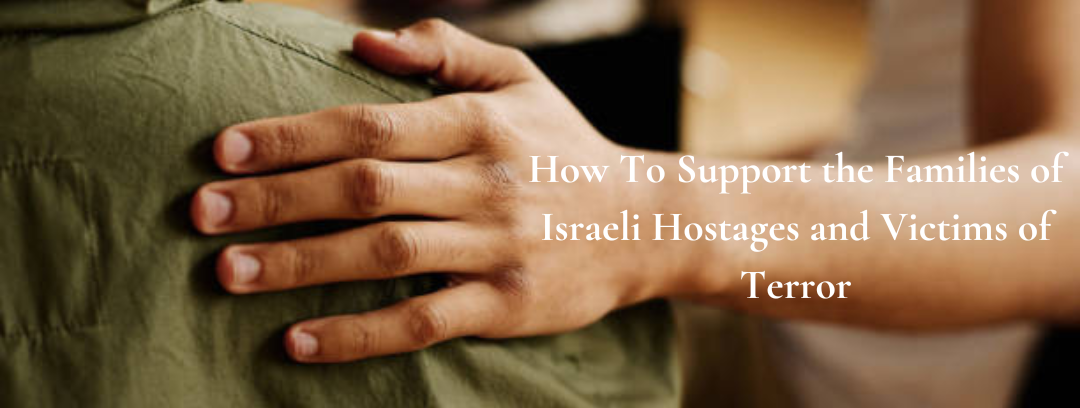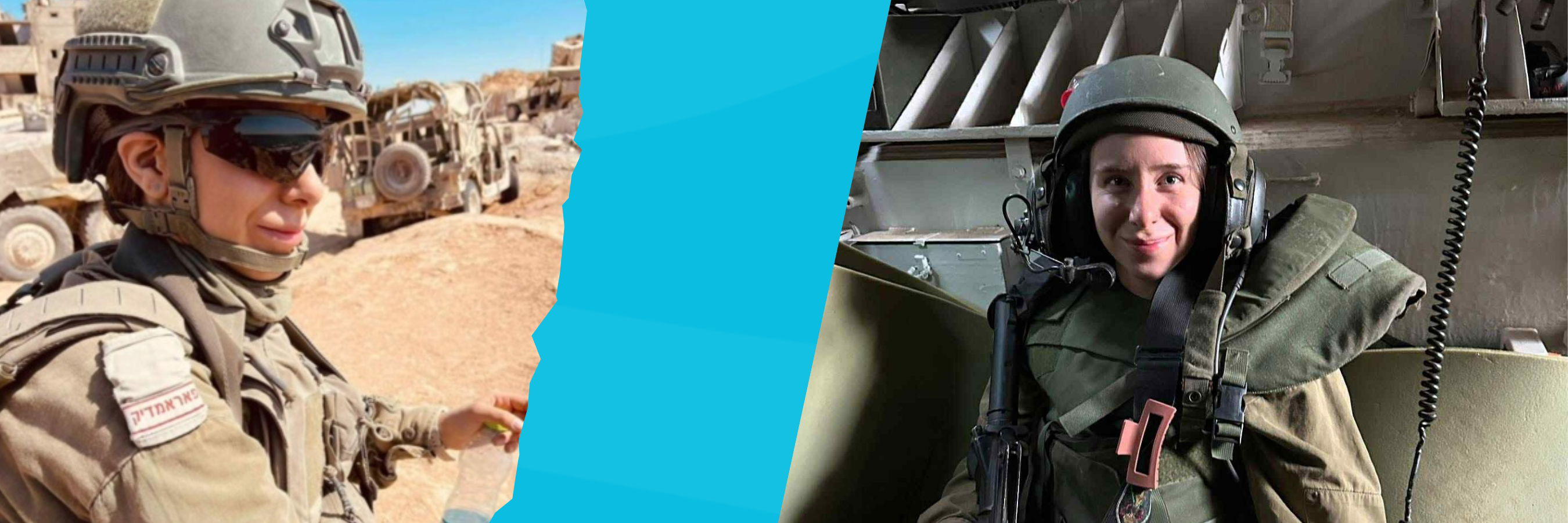If the Jewish future is important to you, please click here and share this email with your family. Welcome to the September edition of the Jewish Future Promise Newsletter.
|
|

Promisers to date: The Jewish Future Promise reached 132,483 Signers, and the Jewish Youth Promise now has 36,367 Youth Signers.

New & Newsworthy
Review: Jewish Giving: Philanthropy and the Shaping of American Jewish Life - Times of Israel Year three of the siege on Jewish students begins -JNS Expert warns parents of ‘hidden agendas,’ including on Jew-hatred, as school year starts -JNS A cure for Jewish communal burnout? Ancient Jewish wisdom -eJewishPhilanthropy Funding for Jewish Life Is Up, But 'More Money Is Being Raised By Fewer People' -eJewishPhilanthropy
Media blackout: Over 200 media outlets across globe join mass editorial protest against Israel -The Jerusalem Post
How To: How to Support the Families of Israeli Hostages and Victims of Terror

In times of unspeakable tragedy, even the smallest gestures of compassion can become lifelines. For families enduring the anguish of hostage-taking and terror, solidarity is more than symbolic—it is strength, dignity, and hope. Each of us has the power to ease their burden, to remind them they are neither forgotten nor alone. Here are meaningful ways to stand with the families of Israeli hostages and victims of terror: 1. Give to Trusted Organizations
Your generosity can directly touch lives, providing relief where it is needed most. By donating to established organizations, you help sustain families in crisis and empower the people fighting to keep them safe:
- Hostages and Missing Families Forum – Standing shoulder-to-shoulder with families of those kidnapped and missing.
- Jewish Agency’s Fund for Victims of Terror – Offering immediate financial relief and long-term healing.
- United Hatzalah of Israel – Delivering lifesaving emergency response and trauma care across Israel.
2. Send Messages of Strength
A letter, a card, or a few words of prayer can pierce through despair. Families draw immense strength from knowing their pain is shared and their loved ones are not forgotten. Joining online campaigns or writing personal notes creates a chain of comfort that transcends borders. Here are several organizations that either coordinate messages of solidarity or directly support families affected by the October 7 attacks, the hostages, or bereaved soldiers’ families: Jewish Federations of North America, We Are All Hostages, OneFamily Fund, and Hostages and Missing Families Forum. 3. Create Community Moments
Acts of remembrance keep the families close to our hearts. Lighting a candle, reciting a prayer, or pausing for a moment of silence—whether at the dinner table, in a synagogue, or at a public gathering—builds a collective embrace of love and memory that sustains those who suffer. 4. Educate and Share
To speak their names and tell their stories is to honor their humanity. Share their experiences with your community and networks. By amplifying their voices, we transform private grief into global solidarity, ensuring their struggle compels awareness, compassion, and action.
Promiser Spotlight: Mika Oz

Mika Oz serves as a combat medic in the Israel Defense Forces, carrying on her family’s legacy of service while forging her own path in medicine and defense. Inspired by her mother, an emergency room nurse, and her early volunteer experiences with Magen David Adom, Mika discovered a deep calling to save lives in the field and to become a military paramedic.
What inspired you to become a combat medic, and how does your Jewish identity shape the way you serve? As a child, my mother worked as an emergency room nurse, and she would often bring my sister and me along. We’d play with medical equipment, pretending to be a doctor and a patient. Those early moments planted the seed of something much deeper. In school, I joined a medical program that required volunteering with MADA, and it was there that I discovered my true calling: to become a paramedic. More specifically, I dreamed of becoming a military paramedic. As a youth volunteer, I looked up to the MADA paramedics with awe, watching them save lives in the field—it felt almost divine. I come from a deeply Zionist home. My grandparents and father all played active roles in Israel’s defense as fighters, and I knew I wanted to continue that legacy. I felt called to serve in a meaningful, impactful way, one that would allow me to help others, work on the ground, and engage my mind. Becoming a military paramedic was the perfect intersection of those values. What does it mean to you to sign the Jewish Future Promise, especially while serving on the front lines of Israel’s defense? Signing the promise for the future of the Jewish people is, to me, a profound privilege; An opportunity to take part in shaping a future for the generations to come. It’s more than a signature; it’s a pledge to live and serve with purpose and values, so that our children and grandchildren can grow up in a free, secure Jewish state. Can you share a moment in your service when you felt the strength of Jewish resilience firsthand? On October 7, there wasn’t a single Jew in the country who didn’t do everything in their power to contribute to the national effort, including on the diplomatic front. Growing up, I was used to hearing stories of wars and battles from my grandfather and father, but I never imagined I would one day be part of something like this myself. Crossing the border of the State of Israel into enemy territory was a deeply intense and frightening experience. What gave me strength was the unshakable sense of unity I felt with the fighters beside me. I always knew I wasn’t alone, that someone would be there to fight for me, to protect me, because that’s what it means to be part of the Jewish people. Our unity is our greatest strength. What is something that you wish the media would tell from your perspective or the perspective of your fellow soldiers? I wish the media would portray the full picture. So often, Israeli soldiers are depicted as aggressive or heartless, and the complexity of our reality is reduced to black-and-white narratives. From where I stand, as a combat medic in the field, I see something completely different. I see soldiers who put their own lives at risk not just for each other, but even for civilians on the other side. We are trained and committed to preserving life whenever possible. I’ve seen comrades hold fire when it would endanger innocent people. I’ve watched medics treat injured Palestinians in the middle of combat zones. These are not the actions of people motivated by hate or cruelty—they are the choices of people guided by a deep moral code and the value of human life. The world often accuses us of genocide or indiscriminate violence, but they don’t see the hours we spend ensuring humanitarian corridors, the medical evacuations we carry out under fire, or the restraint we’re taught to exercise. The situation is deeply painful and complex. No one wishes for war—not us, and certainly not the civilians caught in the crossfire. But we are here to protect our people from those who seek to destroy us, and we do so with the constant burden of moral responsibility. That story deserves to be told, too. What’s one moment during your service that reminded you why defending Israel is so deeply personal? During my service, I had the opportunity to travel to the farthest edges of the country and meet citizens and residents from north to south. The sense of security we provide as soldiers in uniform, allowing them to live their lives and remain in our homeland, feels both deeply meaningful and profoundly important. What message would you want future Jewish generations to understand about sacrifice, service, and the responsibility to protect our homeland? Don’t give up, believe me, it’s worth it. Many people have asked how I continue to serve in the reserves for so long, especially as a woman balancing a job and pursuing a degree. But for me, this is my calling right now—my time to give back to my country so that future generations can inherit the homeland they deserve. If the need arises in the future, my message is this: do what must be done to preserve our country and our unity, because that unity is our greatest strength. It’s in how we care for one another, in our honesty, our sensitivity, and our shared experiences. We go through things others around the world will never face—and it binds us together in a way that is both powerful and unique. In your eyes, what does a strong and secure Jewish future look like, and how can we help build it, no matter where we live? Everyone should contribute and give as much of themselves as they can, whether through public diplomacy, reserve duty, military service, or any other effort that helps safeguard the future of our home, our country. Read Mika Oz’s full promiser spotlight article here. |